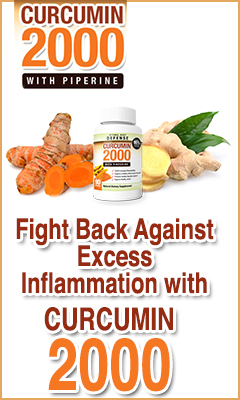Study that used a randomized trial design in a small number
of patients 40 patients aged 50 to 90 with mild memory complaints and in
randomized patients
To a specific type of curcumin that was that has very small
particles basically called nanoparticles and why is this important so curcumin
in the past has had trouble with absorption there are a variety of supplements
that have been tried
However for example John ringman and colleagues published
several years back in a group of Alzheimer's patients curcumin was not
effective for delaying or helping symptoms in any way but when they looked at
the blood - curcumin pills that the patients were taking were not getting
absorbed
So this new version of curcumin was nanoparticles and it's
the the brand is called tharok human and the philosophy behind this is better
absorption so when this trial was performed, not only did patients that were
randomized to the active form of curcumin in 18 months not only did they have
improved memory function but they actually had less amyloid in specific parts
of their brain that correlated with where Alzheimer's disease happens
So what does this all mean well from a practical clinical
perspective this is pretty so what does this all mean well from a practical
clinical perspective this is pretty exciting, study curcumin is a very well
tolerated supplement overall in my clinical practice i've been recommending
that my patients who are interested in prevention or even patients with mild
memory loss cook worth curcumin which is the active form of turmeric and cooking
with it may increase absorption a little bit of fat in the meal
 That kind of thing when it comes to the pills I think it's
exciting I think that while we don't know exactly whether what's the right
dose, we don't know exactly which patients it will work in.
That kind of thing when it comes to the pills I think it's
exciting I think that while we don't know exactly whether what's the right
dose, we don't know exactly which patients it will work in.
I think this preliminary evidence suggests that curcumin may
play a role in the therapeutic paradigm of Alzheimer's disease, now should
curcumin be used for prevention should curcumin use be used for treatment, I
don't think that we know the answers yet but hopefully further studies will
occur that will clarify this when it comes to risk reduction
There's a variety of reasons why curcumin may have benefit
over all it, reduces inflammation it's been studied in a variety of conditions
from cancer to arthritis and maybe if you can calm down the inflammatory
pathways in the brain you can kind of press the brakes towards amyloid
deposition why else
Could it work well there's also?
Antioxidant properties not exactly sure but regardless we
need more more research studies to figure this out so
In summary I do think that curcumin the specific form which
has nanoparticles may play a role which is both now evidence-based to a degree
as well as safe in both the risk reduction and potential therapeutic management
of a person with Alzheimer's disease for
Medscape I'm dr. Richard Isaacson
Video Dr. Richard Isaacson is a neurologist and director of the Alzheimer Prevention Clinic at Weill Cornell Medicine and the NewYork-Presbyterian Hospital in New York City.
Medscape I'm dr. Richard Isaacson
Video Dr. Richard Isaacson is a neurologist and director of the Alzheimer Prevention Clinic at Weill Cornell Medicine and the NewYork-Presbyterian Hospital in New York City.




